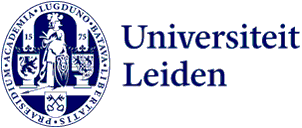
Data science for newbies: honours students learn to utilise AI
Brain scans, heart attacks and credit scores: many science applications revolve around data. But how do you mine applicable insights from a mountain of data? In a Bachelor Honours Class, students discover how data science can contribute to their discipline.
Bootcamp
Although the Bachelor Honours Class Data Science is an introductory course, the students are challenged from the start. The first few weeks they go through a bootcamp to master the basics of the programming language Python. A few lectures later, they get to unleash their newly acquired skills on their own research projects.
Promising results
Today, the students gather in the Gorlaeus building to present the results of their research. The topics of the projects are incredibly diverse. This is no coincidence: in fact, each research team was free to draw up their own plan, says instructor and data scientist Marieke Vinkenoog. 'You can see that students are eager to apply data science to their own fields of study.'
One model turned out to be as reliable as an expert's analysis
Sem (21, Biopharmaceutical Sciences) and his team investigated how Artificial Intelligence can be utilised for stroke prevention. The team gave three AI models the same task: analyse 6,000 brain scans. The results are promising, says Sem. One model, ResNet18, turned out to be 97% accurate. ‘That makes this AI about as reliable as an expert's analysis.’ A useful tool for emergency care, the team concludes.

Smart investing
The next group presented a totally different research topic, which focused on predicting credit scores. Credit scores are used by large investment firms to assess the attractiveness of investing in a country. But credit scores are not always up to date – and that’s where these students saw a niche for data prediction.
The group created an AI model that can predict a new credit score based on a country's economic data and other metrics. This is useful for investors that want to know what they’re getting themselves into. The students also gained insight into the factors that are most important to credit bureaus. ‘Exports matter the most,’ concludes Pepijn (21, International Studies).
After the presentations, the students look back on their hard work with satisfaction. And hard work it was – the Honours Class Data Science is no walk in the park. 'You really do have to put in the hours to learn something new,' states lecturer Marieke. The quality of the education helped to pull through, Sem says. He especially enjoyed the guest lectures by companies like Picnic, Sanquin and the Netherlands Forensic Institute.
Pepijn also looks back positively. Completing this course does not make him a data scientist quite yet, but he believes he now has a better understanding of what the field can mean for him and his studies. 'Personally, I am interested in how a country can grow,' says the International Studies student. 'I think data science can help me figure that out.'

